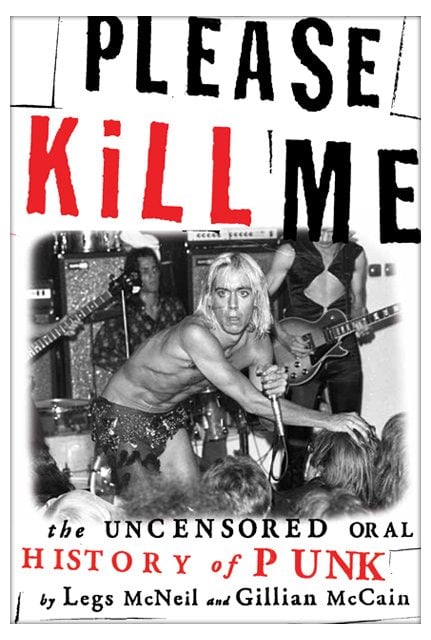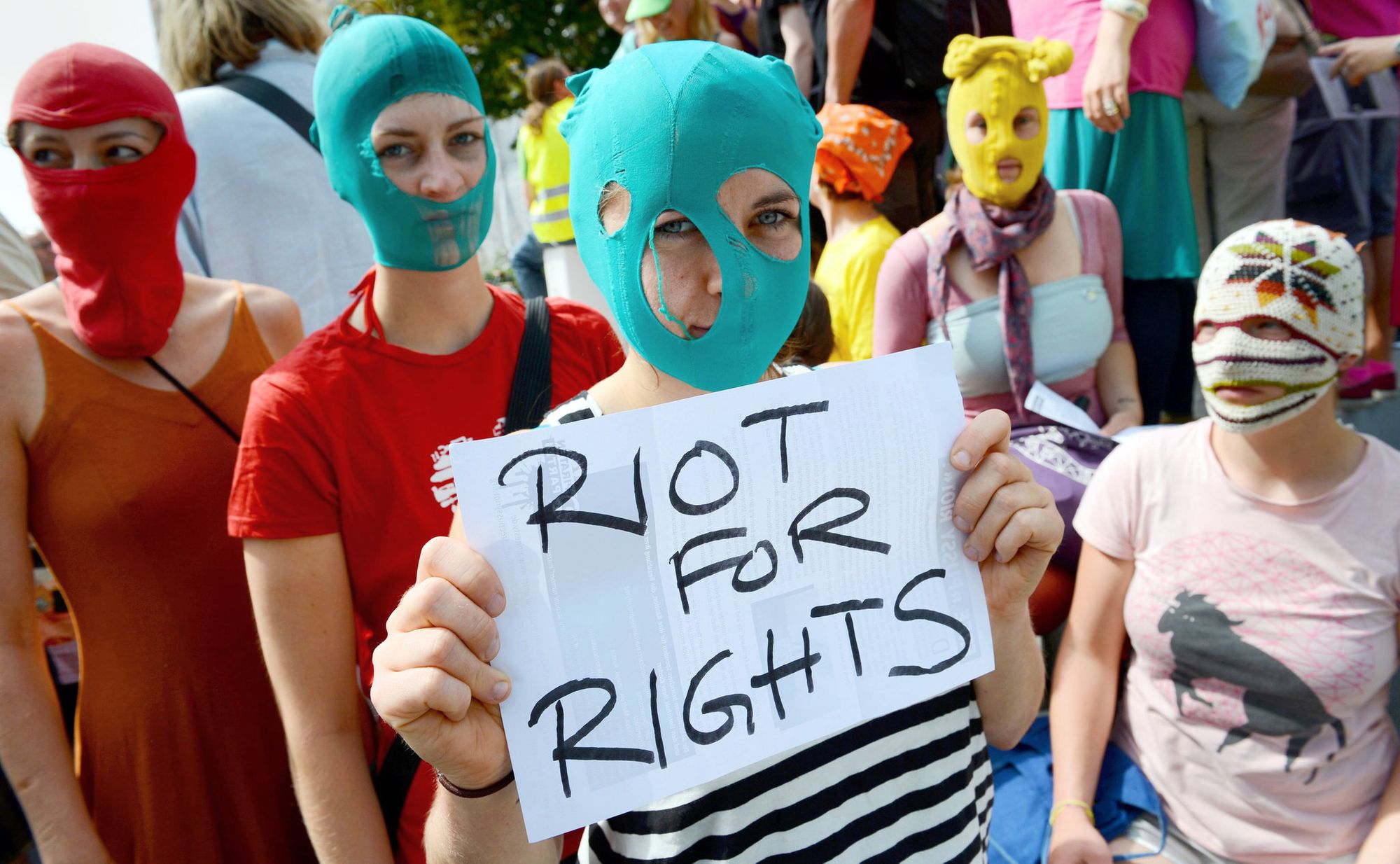Punk: How it Changed My Writing
If moms want to understand their teenage daughters better, they really should try reading the words that we consume.

When my mom peered over my shoulder on the plane and saw the words “Please Kill Me,” she simply just hummed and returned to her book on wellness. She probably grows tired of all the books I give her to read because they just sit there unread, collecting dust. I truly think if moms want to understand their teenage daughters better, they really should try reading the words that we consume!
I first heard of Please Kill Me: An Oral History of Punk from a recommendation of one of the coolest people I’d ever met--Elena Goluboff--a short and intense girl from Brooklyn who single-handedly changed my outlook on the genres of reading and media, all within the walls of a small dorm on the Lewis & Clark campus in Portland, Oregon on a random June afternoon. I owe a lot to the girl with the Brooklyn spice and doodles across her journal.

Please Kill Me was one of the biggest books to alter my psyche this year--so much so that I read it twice. Reflecting on the many books I read this year with a fairly even mix of Classic English Literature and modern writing, to fall akin to an anti-classic, anti-traditional narrative is ironic. Please Kill Me by Legs McNeil, isn’t a rejection of “books,” but it was one of my first tastes of alternative storytelling that is still writing.

Regardless, this year as a whole has been one of my favorite years in terms of reading...it’s one thing I’m rather thankful for after taking two Literature classes in a year and having plenty of time in quarantine. In a time of transition from adolescence to young adulthood added with quarantine, change is so, so inevitable. Maybe this is another reason I love books, because reading promotes some form of change or new inspiration within me regardless of if I even liked the book.
I’ve learned the value of incorporating a kind of punk attitude to my reading and writing.
Not only from actual punk material like the writing of McNeil, but also in the writing of Burroughs and Borenstein, and even in something that reads more traditional like Towles I acknowledge their message that transcends to my own writing.
Please Kill Me opened a whole new world of not just music (The Stooges, The Velvet Underground, The Ramones, Sex Pistols, The Clash, Blondie, Patti Smith) but the antics of the underground punk scene in NYC in the late 1960s and how it became not so underground by the later 1980s.

Also I think everyone should know that much of the foundation of David Bowie’s magnitude would not ring the same greatness had it not been for Penny Arcade, Jayne County, and Andy Warhol’s underground, vulgar drag shows like Pork.

This is a book that rearranged how I processed fame and the structure of a story--Legs McNeil rarely, if ever, wrote his own thoughts. Instead, the entire book is simply excerpts of interviews and oral accounts of the characters, musicians, and groupies themselves. I was also exposed to the influences on some of the greatest artists of that era and how they lived...kinda terribly. Everyone wants to be a Chelsea Girl until they realize what that actually meant.
Sometimes the greatest works introduce and inspire pursuits to new pieces of writing, music, media, and history. Beyond music and punk culture that wasn’t punk yet, this reading introduced me to other writers' works like William S. Burroughs and Patti Smith. I’ve learned that reading and the power of books transcends from its perceived isolating effect, because reading is rather independent, but that it is also a form of real communication.

Personally, it is a valuable complement to be recommended a book or for someone to read something I gave them. If my mother just read maybe two of my most favorite books I think maybe she would get me a little more, because reading is really a shared experience; that is not something I ever came to appreciate until now.
As practically a love letter to the words I have been fortunate enough to read, and in the spirit of gratitude, books and the words of others are some of the most special and fruitful things to my life and pertains to a lot of what I wish to do for the rest of my life. If I could just read books for the rest of my life and then write alongside I would...maybe I can.
The next book I read was A Gentleman in Moscow by Amor Towles. As I read this in the midst of a Texas snowstorm, I will never forget this book even if I tried because of the conditions in which I read it and the routes it led me to pursue. First: the Russian Revolution. Second: the Russian modern day, punk aftermath of an oppressive government in Pussy Riot by Eliot Borenstein.

Towles’ writing feels traditional and academic but presents a fictional narrative of how to turn meaningless isolation into something with merit. With protagonist Count Alexander Rostov having been stripped of his luxurious lifestyle to the confinement of the Metropol, Towles, in way, gives Rostov the method to be a “master of his circumstances” and find loopholes that allow him to still have his fancy meals and importance within a high class community. In a way, Rostov’s rejection of accepting his restricted circumstances is punk, because he has an intellectual and mental attitude that sets him apart.
What influenced my decision to read Borenstein was both Please Kill Me and A Gentleman in Moscow. With Towles’ book being focused in Russian during the Bolshevik revolution and Leg’s being focused around a punk lifestyle, I found Pussy Riot to be the mending of my new interest in Russian government and chaotic, punk behavior.

Following the three figureheads of the punk protestors, Nadezhda Tolokonnikova, Maria Alyokhina, and Yekaterina Samutsevich, I walked through the wild forms of actionism that led to rejection of the church, sexism, and Putin. What I appreciated was the representation of women that are angry, assertive, bold, and quite literally criminal in the same way Fiona Apple and Mitski orchestrate a fuming woman not because everyone labels them as such, but because that’s what they feel and they are unapologetic about it.
These three books taught me that reading, conversation, and life itself is not a linear, consequential entity but branches into new outlets...and that it is okay to be angry and do something about it. They taught me this “punk” attitude not in a rebellious, disastrous format, but an individual and kind of straightforward approach to writing and reading. Together they taught me the chain reaction of events and cultures--the fusion of youth, wealth, politics, and media. They taught me to approach people and assignments with an openness because if it had not been for Elena’s devout recommendation of some really long, aggressively-titled book, would I have ever learned the importance of the intersectionality of women’s rights with punk rock music?

